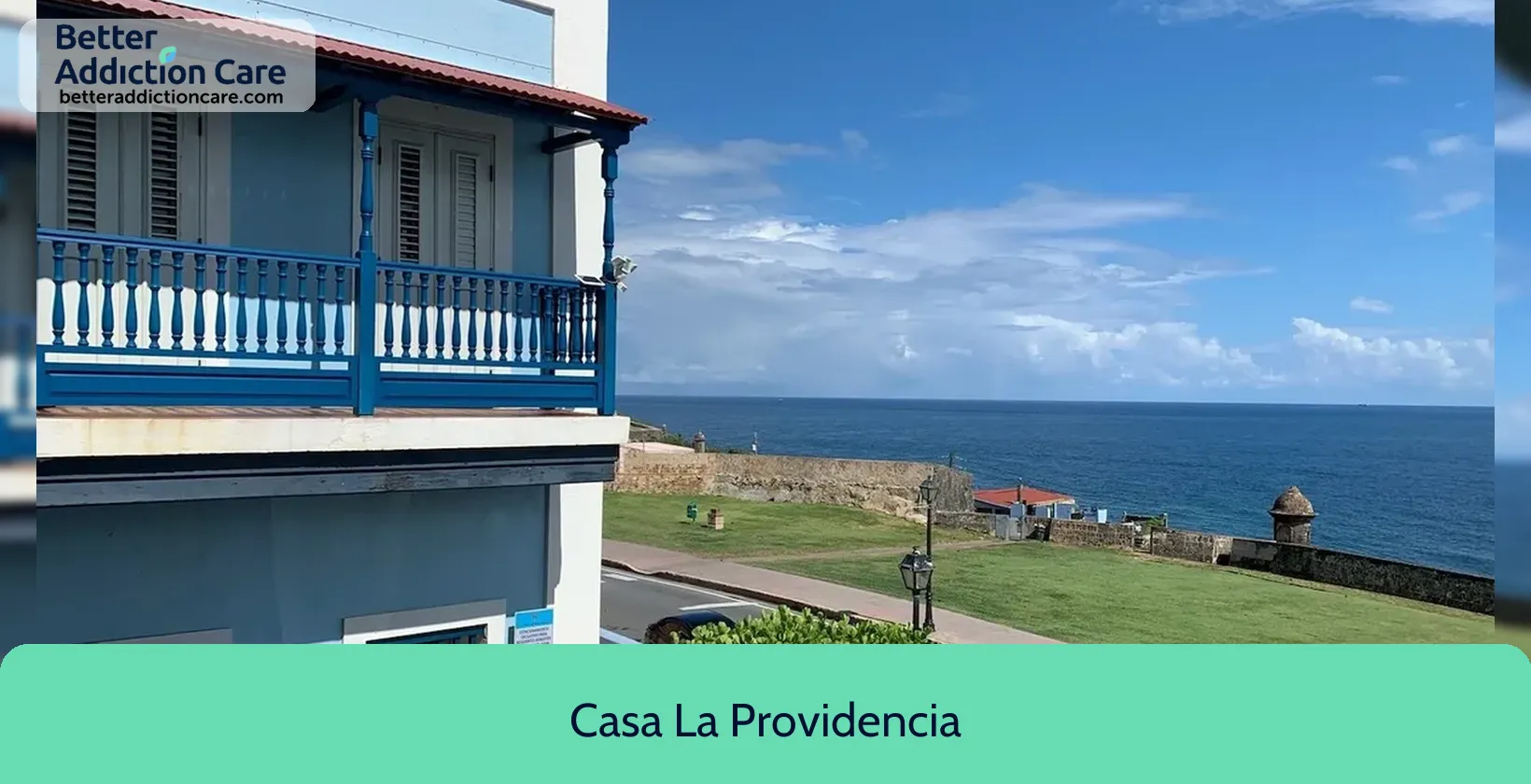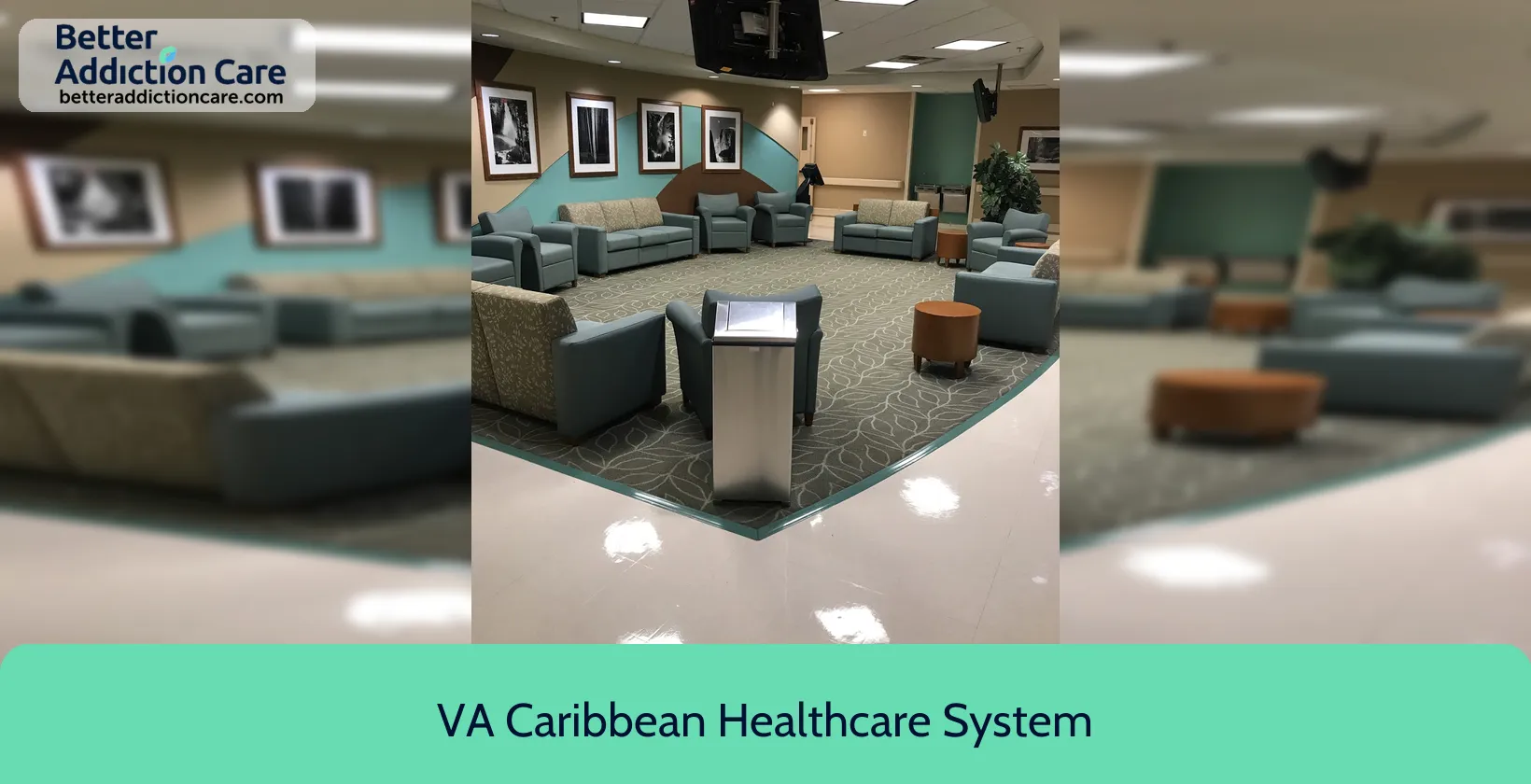Panamericano San Juan

Overview
Panamericano San Juan is an mental health treatment center that provides inpatient treatment for men between 18 and 65+ years of age. As part of their special programs, Panamericano San Juan treats active duty military, persons with eating disorders, and clients who have experienced trauma. To help patients achieve sobriety, Panamericano San Juan provides intake assessments. Afterward, patients receive family counseling, individual psychotherapy, and eating disorder treatment during treatment. Panamericano San Juan is located in San Juan, Puerto Rico, providing treatment for people in San Juan County, accepting private health insurance, cash or self-payment, and state-financed health insurance plan other than medicaid.
Panamericano San Juan at a Glance
Payment Options
- Private health insurance
- Cash or self-payment
- State-financed health insurance plan other than Medicaid
- Medicare
- Federal military insurance (e.g., TRICARE)
Assessments
- Comprehensive mental health assessment
- Comprehensive substance use assessment
- Screening for tobacco use
Age Groups
- Adults
- Young adults
- Seniors or older adults
- Seniors
Ancillary Services
- Case management service
- Diet and exercise counseling
- Education services
- Family psychoeducation
- Suicide prevention services
Highlights About Panamericano San Juan
6.83/10
With an overall rating of 6.83/10, this facility has following balanced range of services. Alcohol Rehabilitation: 8.00/10, Drug Rehab and Detox: 6.00/10, Insurance and Payments: 6.00/10, Treatment Options: 7.33/10.-
Alcohol Rehabilitation 8.00
-
Treatment Options 7.33
-
Drug Rehab and Detox 6.00
-
Insurance and Payments 6.00
Treatment At Panamericano San Juan
Treatment Conditions
- Mental health treatment
- Substance use treatment
- Co-occurring Disorders
- Alcoholism
Care Levels
- Hospital inpatient treatment
- Hospital inpatient/24-hour hospital inpatient
Treatment Modalities
- Family counseling
- Individual psychotherapy
- Eating Disorder Treatment
- Group counseling
- Experiential Therapy
Ancillary Services
Languages
- Sign language services for the deaf and hard of hearing
- Spanish
Additional Services
- Pharmacotherapies administered during treatment
- HIV testing
Special Programs
- Active duty military
- Persons with eating disorders
- Clients who have experienced trauma
- Clients with co-occurring mental and substance use disorders
- Veterans
Get Help Now
Common Questions About Panamericano San Juan
Contact Information
Other Facilities in San Juan

7.25

8.09
DISCLAIMER: The facility name, logo and brand are the property and registered trademarks of VA Caribbean Healthcare System, and are being used for identification and informational purposes only. Use of these names, logos and brands shall not imply endorsement. BetterAddictionCare.com is not affiliated with or sponsored by VA Caribbean Healthcare System.
